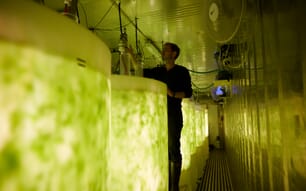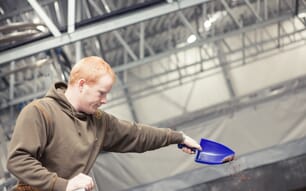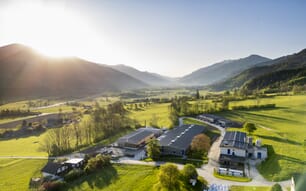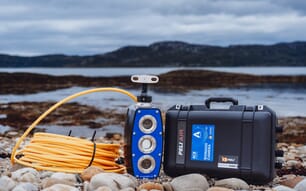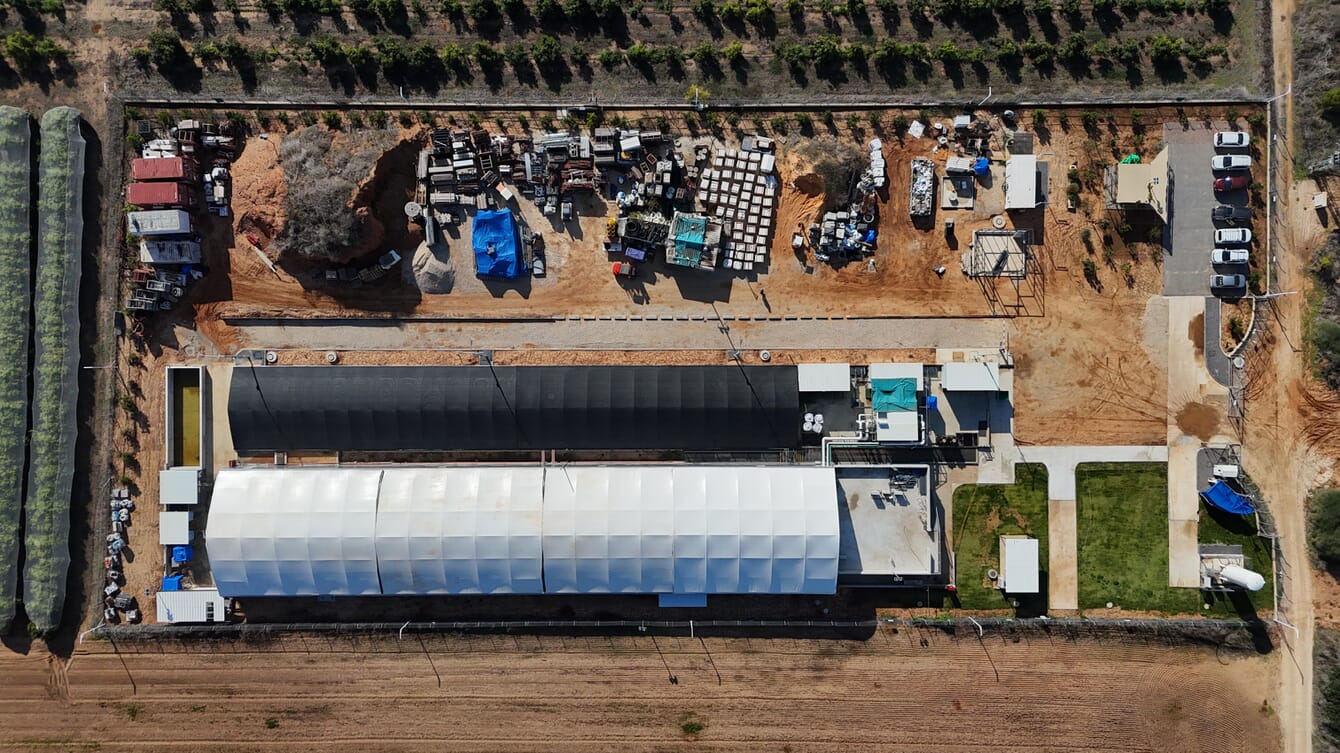
© Pure Blue Fish
The Fish Site spoke to Ehud Brill, the company’s operational manager and partner, as well as Dr Sagiv Kolkovski, a world expert on yellowtail kingfish, who is one of their key consultants to find out more.
What is Pure Blue Fish?
Ehud Brill: Pure Blue Fish Ltd is an aquaculture company that specialises in RAS technology. The company owns an innovative and advanced ‘zero discharge’ RAS IP. The RAS operates only on a biological basis, where each module includes the aerobic and – unlike in conventional RAS – anaerobic reactors, which enables the processing and recycling of 100 percent of the culture water.
Can you tell us a bit about your first farm?
Our first farm, which is in Israel, has been operating since June 2024. While relatively small, with a 125 tonne annual capacity, we are using it as a prototype for future farms.
The system’s design is the result of collaboration with several different companies: the aerobic filters were tailored-designed by a company which specialised in large urban waste water systems. The anaerobic reactor was internally designed and it is part of the IP. The foam fractionator was designed with another company specialised in water treatment. It is a unique large foam fractionator that is gravity-fed and can process 350-400 m3 of water per hour. Several other components were also designed specifically for the system including the ozone system, management system and even the pumps themselves
We are currently culturing red drum but – from February 2025 – the farm will switch to yellowtail kingfish, as we will have access to kingfish juveniles for the first time.
The farm has no connection to an external seawater source nor a connection or option to discharge waste-water from the farm. We produce our seawater from municipality water with added sea salt.
What makes your RAS special?
Ehud Brill: Most, if not all, RAS currently operating around the world have some element of water exchange / replacement that can range between 5-30 percent. PBF’s zero discharge technology means just that – ZERO discharge. No water out. All the farm’s solid waste is treated in our proprietary reactors and emitted as natural gasses following the natural nitrogen-carbon cycle. However, in the future PBF plan to re-use the CO2 in the future for growing salt-tolerant herbs near the farms
This unique process enables the company to locate the farm closer to population centres, away from the ocean and/or natural water sources. Moreover, having no discharge water from the farm means that it can be located near sensitive areas, such as natural reserves. There is no risk of contaminating the surroundings and/or affecting the endemic fauna.
Compared to other RAS, energy consumption is relatively low. The filter’s unique design and water flow between the culture tanks and treatment tanks significantly reduces the energy consumption.
Sagiv Kolkovski: Having the farm isolated from any natural seawater sources means that the farm is naturally biosecure. Added to that, we use strict quarantine measures and have an independent facility for incoming biological material to ensure healthy fish, without the need for treatments.
A completely closed system also means that the company can culture species that are not-endemic without any fear of escapes. To date, PBF has received sweeping approvals for non-endemic species in the US, the EU and Israel, with an understanding that there is no environmental risk in the culture of non-endemic species in our systems.
How did you select the species to grow?
Sagiv Kolkovski: Yellowtail kingfish (Seriola lalandi) is our top priority. In recent years, yellowtail have received significant attention in Europe, USA and other potential markets. The fish have an amazingly fast growth rate, sushi-grade flesh and fetch a good price.
Other species under consideration are red drum (Sciaenops ocellatus) and white sea bass (Atractoscion nobilis), which are both very well-known in the US markets. These species are also very fast-growing fish, with great flesh attributes.
The company plans to evaluate these species according to the target markets’ familiarity with them, value and availability of juveniles.
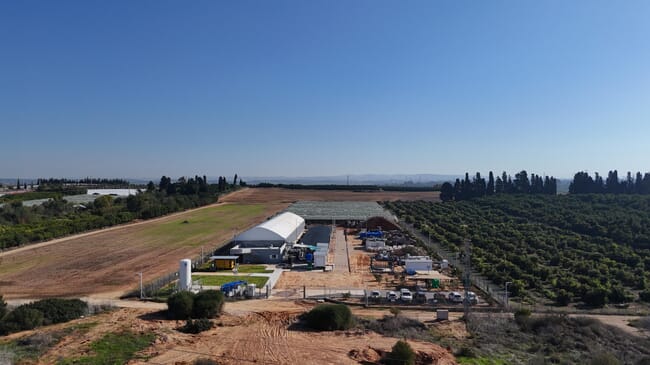
© Pure Blue Fish
Would you consider selling your RAS technology to others?
Ehud Brill: We are primarily farmers, and our aim is to culture high-quality marine fish. While the company holds innovative and (we believe) unique technology for zero discharge RAS, the company is not currently selling these systems and/or technology.
What are your future plans?
In 2025, we will establish our first farm on our own property in n South Carolina. This will produce both yellowtail kingfish and red drum for the local market. We intend it to be the first of several farms to be established in selected locations in the USA.
The PBF business strategy is based on modular development of farms in the different locations, starting with limited number of modules (2-4) and expanding according to the market demand and production progress. This business model will reduce the financial pressure as has previously happened with other some mega RAS projects around the world. Responsible, profitable, environmentally-friendly growth is PBF’s long-term vision.
Sagiv Kolkovski: PBF truly believes that yellowtail kingfish has huge potential. It is an ideal fish for RAS with fast growth rates, acceptance of very high densities and premium white flesh. I actually wrote an article a decade ago with the title ‘Yellowtail kingfish – the new salmon?’. While the culture volumes and state of this species is still far from salmon, in the past years more and more projects are being developed.
Culturing this species using the zero discharge RAS will open new opportunities in different locations such as the US, which has strict environmental regulations for aquaculture ventures, or European markets where yellowtail kingfish is not an endemic species.
Moreover, culturing kingfish in zero discharge RAS completely eliminates the risk of skin and gill parasites, a major health issue in sea cage systems. Hence, increasing growth and survival of the fish and reducing costs associated with parasite treatment.
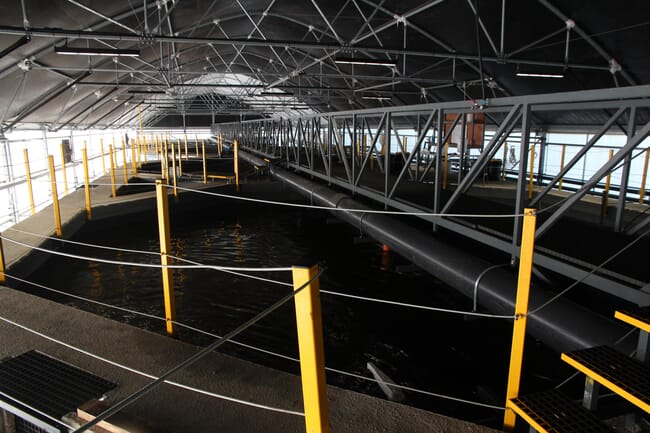
© Pure Blue Fish
How does PBF differentiate itself from other fish farms in terms of sustainability?
Ehud Brill: Our farms can be located near population centers. We have limited the distance to maximum of 6 hours drive from our customers (in fact, the current farm is less than an hour’s drive from two major cities, Tel-Aviv and Haifa). This means a significant reduction in carbon emissions compared to other farms which sometimes need several days, sometimes including flights, to reach their market. Moreover, the short distances between the farm and customers means the highest possible quality and freshest final product can be guaranteed.
How have you funded the venture and will you be looking to raise more capital?
We have private investors in the farm we set up in Israel that believe in our way and truly see our technology as something that will change the thinking of land-based aquaculture. They see the big picture and know that pushing to be the most sustainable aquaculture and supply products fresh and healthy products locally will be the next evolution in fish farming.
The company strategy is to have local partners in each of the farms we will establish. So, yes, we will raise local capital in the coming years.

